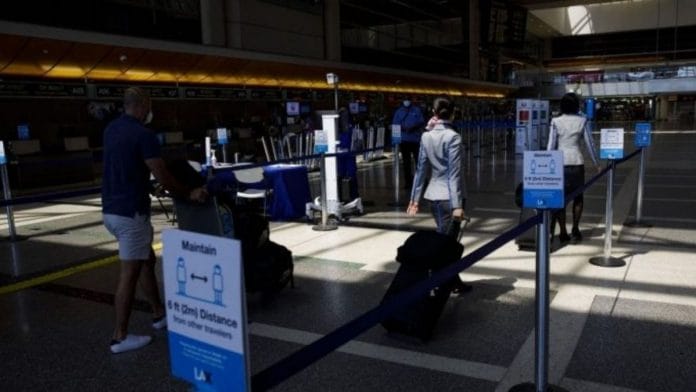New York: Ten years ago, Dan Sherman could have told you that tourism was going to take a big dip in 2020. But Sherman isn’t an epidemiologist with a crystal ball. He’s a travel industry veteran who’s been watching booking trends for long enough to know that economic downturns happen in predictable, four-year cycles. The fiscal uncertainty surrounding presidential elections, it turns out, can knock sales down by more than 30% compared to a normal year—costing some companies billions of dollars in lost revenues.
Sherman, the chief marketing officer of Ski.com, gets off comparatively easy. Skiers are committed travelers who hospitality marketing professionals consider to be almost unshakeable; still, however, there are small signs of flagging devotion. “Normally, half of our reservations are completed before Thanksgiving,” Sherman explains.
But during the last four presidential election years, he says his sales by Election Day have dropped 8.33% and remain 6.38% lower than other years at Thanksgiving. “Regardless of circumstances like Covid, the economy, or the personalities running for president, the travel industry always sees a downturn during an election year,” he says.
The numbers become more dramatic when looking at mainstream booking patterns, like winter escapes to the tropics.
Brady Binstadt, vice-president at the high-end travel consultancy Journey Mexico, says his third-quarter sales dipped by 34% year-over-year ahead of the 2016 election. Group trips were his hardest hit segment, tumbling 43%, while his ultra-high net worth individual business dropped by just 4%.
“In normal election years, people always think their candidate’s policies will affect their checkbook,” says Sherman. This creates “a heightened fear of a change in the economy.”
Both Ski.com and Journey Mexico are members of travel agency consortium Virtuoso, which, across its 20,000 advisors and 1,800 company partners sold $30 billion worth of transactions in 2019. In examining the impact of the last three American presidential elections on travel bookings, Virtuoso’s managing director of public relations Misty Belles found that the company’s steady double-digit growth was curtailed to roughly 3% in election years, signaling over $4 billion in projected missed revenue for 2020—a figure thatdoes not include Covid-related losses.
Belles credits that more to election year market instability than proposed legislative shifts, though the two are intertwined. (One reason that traders expect volatility in the lead-up to an election is anticipated shifts in tax and regulation policy.) Daily spikes and plummets of the stock market directly affect affluent individuals’ spending, she says. The choppiness tends to begin three months ahead of an election and lasts weeks after the results are declared, with stocks swinging twice as violently and average S&P losses of 1.8% to be expected after Nov. 3.
Tom Foley, senior vice president of the hospitality marketing tech company Inntopia, thinks the election year travel slump also has to do with mental bandwidth.
“Consumers become heavily distracted in the lead-up to an election,” he says, explaining that would-be voters get so consumed in the issues, they stop thinking about future plans. There’s one exception, according to Belles’ data—year-end holiday travel, which takes a smaller hit relative to other types of trips.
No matter why travel dips during election cycles, the effect doesn’t end the day the votes are counted. Lags in spending continue through the lame duck period and the early days of a new administration, regardless of whether a democrat or republican takes control of the White House. After the first 100 days of a new presidential term, Belles explains, clients are ready to set their sights on much-needed summer vacations.
And there’s one other bright spot that travel businesses can usually count on: last-minute October bookings, which Belles has dubbed “election escapes.”
“People have had enough of the mudslinging by October, and we see them taking short getaways to distance themselves from the noise,” Belles notes. She points to upticks in 3- to 5-day bookings by Gen-X and millennial travelers, typically to neighboring nations such as Mexico and the Caribbean.
This year, that won’t be the case. The virus and its effects on the economy—as well as the high stakes associated with this year’s contest—will dampen election escapes for all but the most committed of travelers.
But Sherman sees reason to believe that bookings may pick up after results are declared, depending on the winner. “People are waiting to see who’s elected because of each candidate’s Covid policies,” he says. “If Biden wins then there will be more confidence that conditions will improve.” –Bloomberg
Also read: Indian markets could emerge as one of Asia’s biggest beneficiaries from US election






